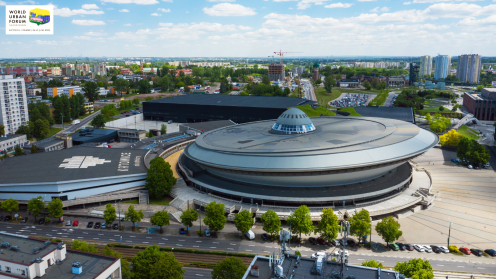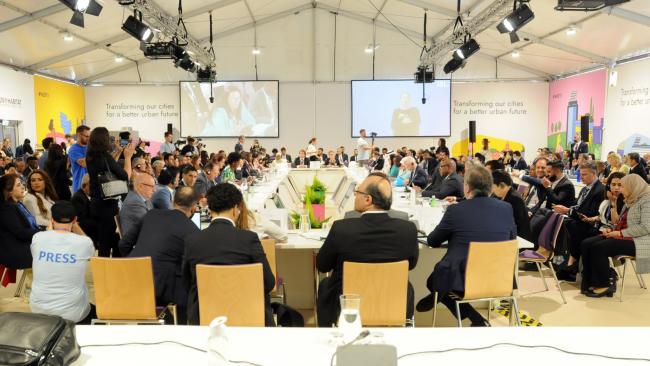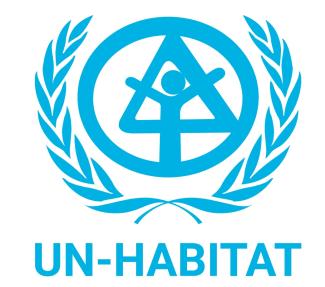On day three, WUF participants zoomed in on equity and two of its main determinants – affordable housing and accessibility. In the morning Dialogue on Equitable Urban Futures, speakers warned that solutions to tackling the increasing inequalities in cities must be devised in partnership with those directly affected. The Dialogue on Building Resilience for Sustainable Urban Futures highlighted the urgency of resilient planning, citing COVID-19 and the war in Ukraine as examples for why it is never too early to be prepared for the next crisis.
In the afternoon, speakers in the Special Session on Delivering Affordable Housing Across Continents said solidarity and inclusivity must be at the forefront of the housing sector. Teresa Czerwińska, European Investment Bank, said “something evidently has gone wrong” with the housing sector becoming increasingly inaccessible. The Special Session on Tackling Urban Health Challenges discussed incompatible government policies between levels of government as a barrier of good urban health. In the Special Session on National Urban Forums (NUFs), participants shared both benefits and challenges to hosting NUFs, while also discussing aspirations for future forums. In a Special Session on Rebuilding from War and Natural Disasters, panelists emphasized the need for people-centered approaches that build back both the physical and social fabrics of cities. Appearing by video, the Mayor of Kharkiv, Ukraine, emphasized that the city was “still alive” and planning for redevelopment.
Want to dive deeper on today's talks? Read the Earth Negotiations Bulletin daily report.
Equity and housing were also prominent issues in the roundtables of parliamentarians and ministers. Parliamentarians focused on discussing how they can support sustainable urbanization in the legislature with popular approaches, including developing framing legislation and building bridges between parties and governmental departments, and with stakeholders. Many noted that recent crises have pushed cities back on several fronts, but most severely by increasing poverty. Ministers presented their countries’ measures to implement the New Urban Agenda and achievements to date. Programmes to support affordable, sustainable, and inclusive housing are key pillars of such strategies and, according to some, the most challenging part of sustainable urbanization.
The Special Session on The City We Need Now! invited participants to address the ten different goals of the campaign and share specific, action-oriented suggestions towards accelerating change. The Persons with Disability Roundtable took stock of the progress made on rendering cities more accessible, with speakers calling for further use of universal designs, accessibility legislation and standards, and disaggregated data. Participants in a Special Session on Nature-based Solutions stressed the need to close finance gaps for “blue-green” projects, particularly in low-capacity urban areas that have difficulty accessing direct funding. The Older Persons Roundtable explored age-friendly cities and underlined the importance of accessible public spaces for the benefit of older people’s dignity, autonomy, and, ultimately, for the respect of their human rights.
All ENB photos are free to use with attribution. For photos from WUF11, please use: Photo by IISD/ENB | Diego Noguera.
To receive free coverage of global environmental events delivered to your inbox, subscribe to the ENB Update newsletter.





















































